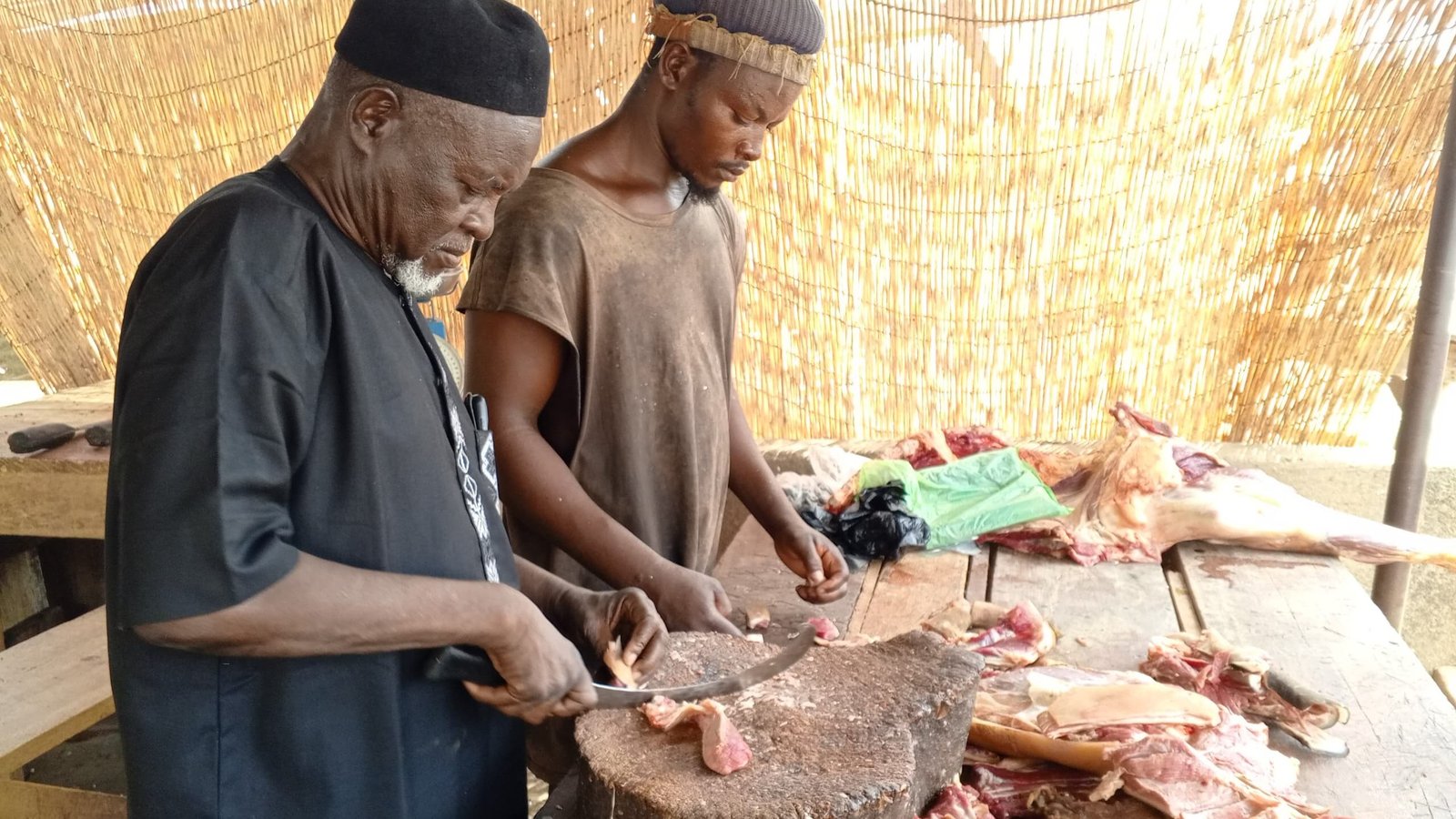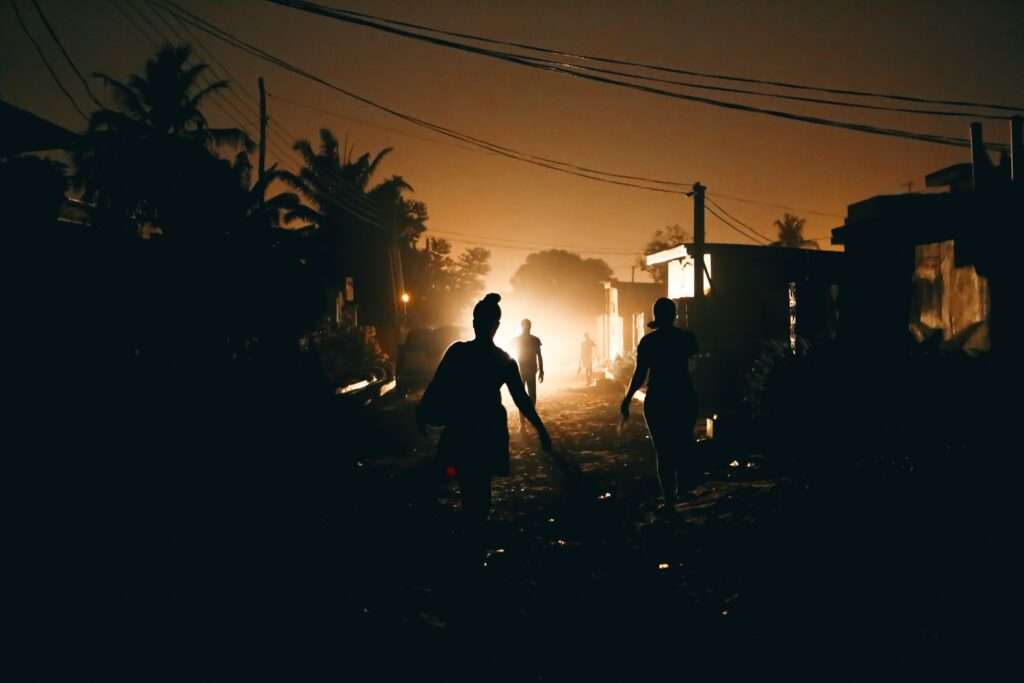Cold store operators and butchers in the Bolgatanga Municipality of the Upper East Region are voicing deep concern over the persistent and worsening power crisis affecting the area in recent months. Many say the situation is far more severe than they initially anticipated.
Over the past month, Bolgatanga and its surrounding communities have faced severe disruptions in electricity supply. Some areas have been plunged into complete darkness for hours or even days, while others experience low voltage that fails to power essential equipment like commercial deep freezers.
Among the hardest hit by the ongoing power crisis are butchers and cold store businesses, whose livelihoods depend on electricity to keep perishable goods fresh. Many of them have seen large quantities of meat and other products spoil due to the unreliable power supply.
Speaking to theVaultz News, affected business owners shared their growing frustration. Several reported being forced to discard spoiled goods, a costly loss that has become all too frequent amid the unrelenting outages.
Inusah Samari, Chairman of the Butchers Association in the Bolgatanga Municipality, expressed his dismay over the persistent blackouts, saying the crisis has forced many butchers to spend more just to preserve unsold meat.
The additional costs, he noted, are eating into already thin profit margins and making business increasingly unsustainable.
“The intermittent transmission of the lights doesn’t help our business as butchers because, it is not possible for us to sell all our meat and anytime we reserve some of the meat inside the refrigerators, the power supply is not enough so the following day when you come you find out some of the meat has gotten bad.
“We are not able to sell it, and so that gives us a lot of loss, and so we are appealing to the authorities to see to it that they will stabilize the power crisis.”
Inusah Samari

For Mr. Baba, who sells the entrails of the animals, he is compelled to sometimes throw away his meat because of his inability to refrigerate the remainder of it after the day’s sales due to the power outage.
Similarly, Biihnaab Vuuzien, a local butcher, recently had to discard unsold meat due to the lack of refrigeration, making it impossible to preserve the products for sale the next morning.
He noted that dealing with the now all-too-common power outages—and the resulting losses from spoiled meat—has become increasingly difficult and unsustainable.
“Now we have to sell the meat cheap because if we don’t, we don’t know if there will be lights to store the meat. We are confused as to what to do.
“I had to buy ice-blocks to keep my leftover meat cold enough to prevent them from spoiling, and that is another cost, and the cattle owners will not understand that, there is no light. They want their money and not what happened.”
Biihnaab Vuuzien
He further disclosed that they are often unable to pay cattle owners the previously agreed-upon amounts, as daily sales consistently fall short of expectations due to the ongoing power challenges.
Operators of Cold Store Assess the Impact of Power Crisis
The situation is no different at Amenuveveye Limited, a cold store located in the municipality. Its Manager, Gideon Banyimanye, echoed similar concerns, noting that running a cold store has become increasingly costly due to the ongoing power crisis.
He emphasized the impact on their products, stating, “Fish like this—when it defreezes, it’s very difficult for you to get it back to good shape, no matter how you freeze it again.”

He further explained that the frequent power fluctuations have damaged some of their machines, adding to their operational challenges.
He warned that continued damage to equipment not only strains their profit margins but also poses a serious risk of staff layoffs if the situation persists.
Mr. Banyimanye expressed frustration over the unannounced nature of the outages, pointing out that the power often goes off without any prior communication from the electricity distribution company—leaving them unable to plan or prepare for the consequences.
He appealed to the government, through the relevant ministry, to urgently resolve the issue once and for all in order to prevent further losses and the possible collapse of affected businesses.

Meanwhile, on April 3rd, the Minister for Energy and Green Transformation, John Abu Jinapor, stated in a Facebook post that a major system disturbance along the Tafo-Nkawkaw transmission line had caused blackouts in parts of Northern Ghana.
“At 20:17h, while efforts were in progress to restore the Tafo-Nkawkaw line to service, other adjacent lines tripped, causing Bui Power Plant, Anwomaso Thermal, Karpower, TICO, and some units at AKSA to trip, causing system frequency to decay to 49.0 Hz. The incident took off the power supply to the Northern parts of Ghana beyond Kumasi”.
John Abu Jinapor
Despite the Minister’s assertion that the issue has been rectified, it is yet to be felt by businesses and residents of the Bolgatanga Municipality who yearn for uninterrupted power supply.
Also, according to the Northern Electricity Distribution Company (NEDCO), there is a likelihood of further power cuts due to a maintenance effort they are undertaking in some of their plants and transmitters in the Region.
READ ALSO: Mahama Urges Aggressive Oil Drilling “Like There’s no Tomorrow”



















